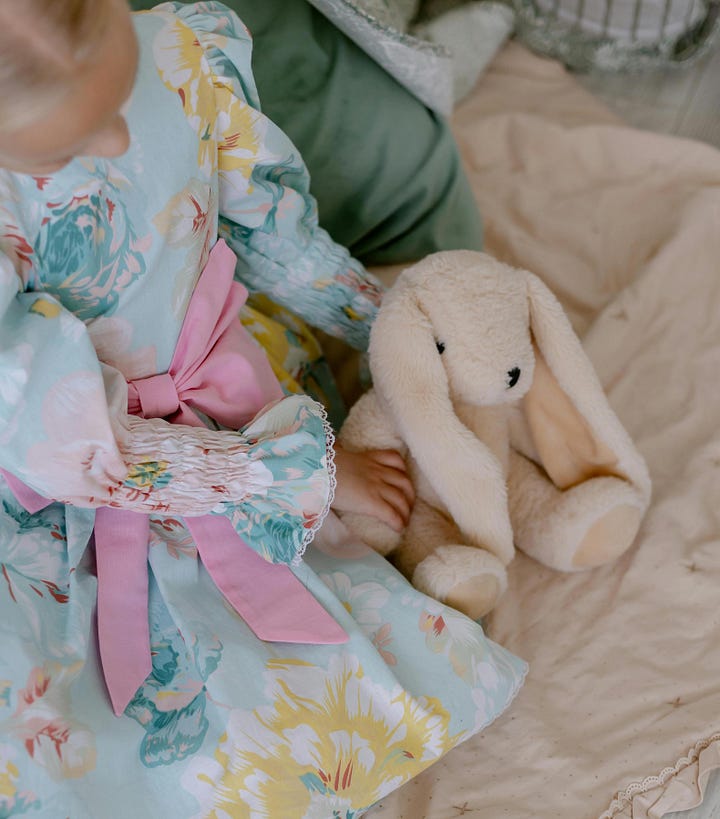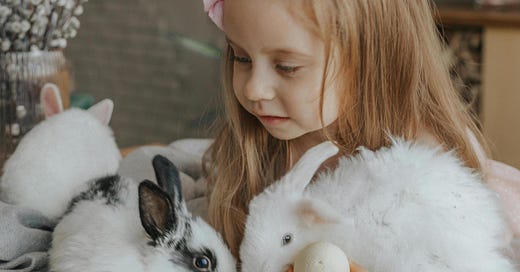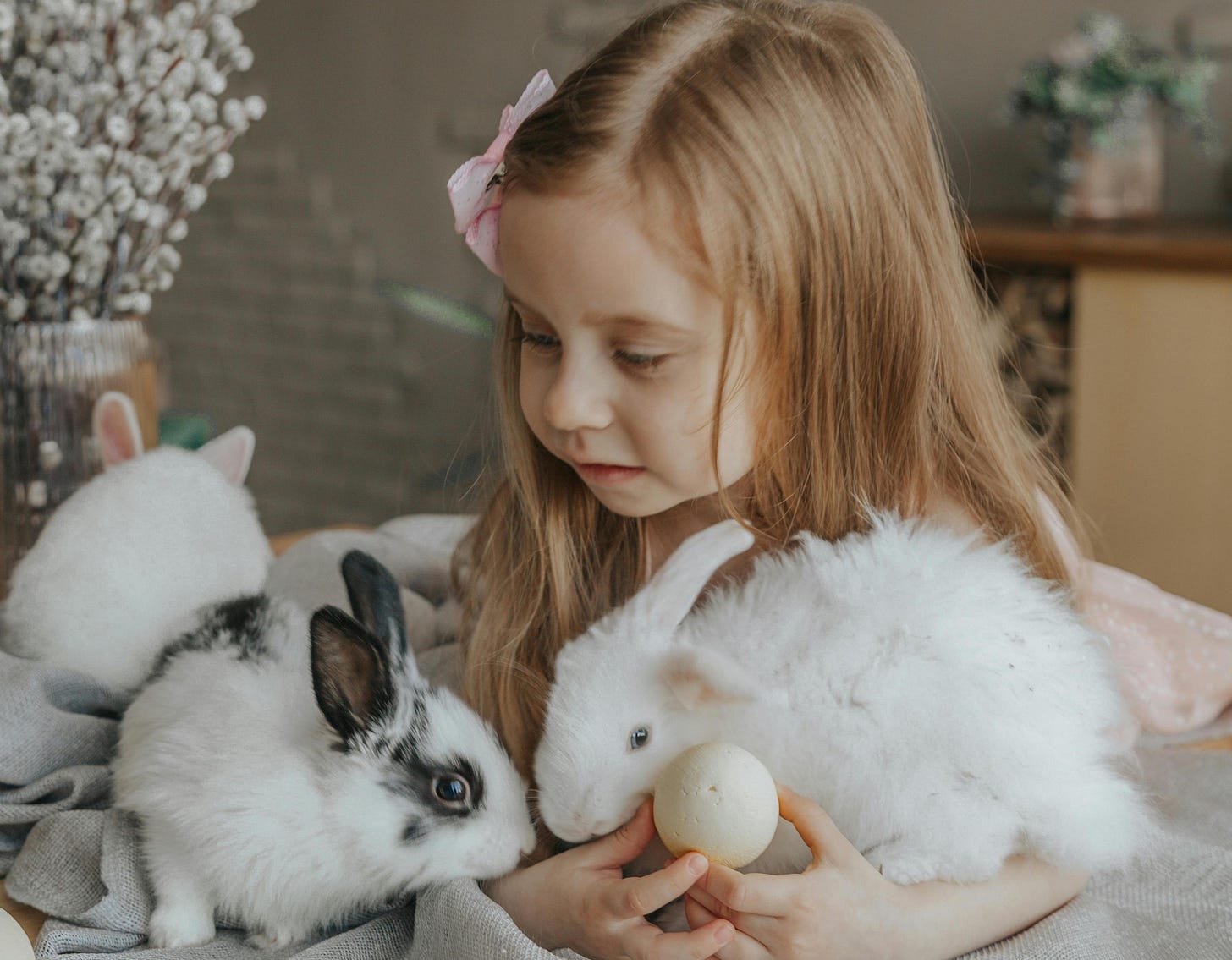No Bunny Business: Why Easter Bunnies Are NOT the Perfect Present!
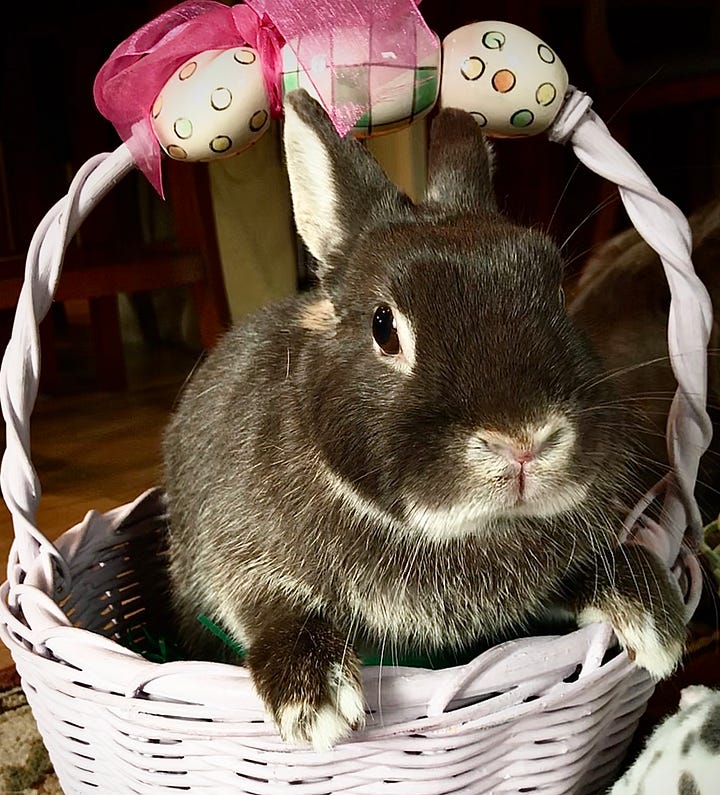



In one of my recent articles (Why Everyone is Choosing Bunnies!) I discussed how rabbits are quickly becoming a very popular pet and for good reason; they are cute, fuzzy, soft, absolutely adorable and make great companions! BUT there are many reasons why you should not rush out and buy a rabbit just for Easter!
Rabbits are not ideal for young children: Though they are cute and cuddly, rabbits are also very fragile. Rabbits must be handled very carefully so they do not injure their backs, AND they do not suddenly jump and break their legs. This is a very common injury for rabbits (jumping from children's arms) and often ends with a fracture of their leg or more seriously, their back.
Rabbits are destructive: Cute little fuzzy baby rabbits grow up to be adults, and adults chew on cords, carpet, furniture, and items you most value. They can be litter box trained, but if you have a territorial rabbit, it is very possible for them to spray to mark their area. Spraying is urinating in a spray-like action to cover lots of areas. This urine can stain and smells rather strong. It doesn't always clean up easily, especially if on fabric or porous items that will absorb the urine. This is "NORMAL" behavior for intact rabbits.


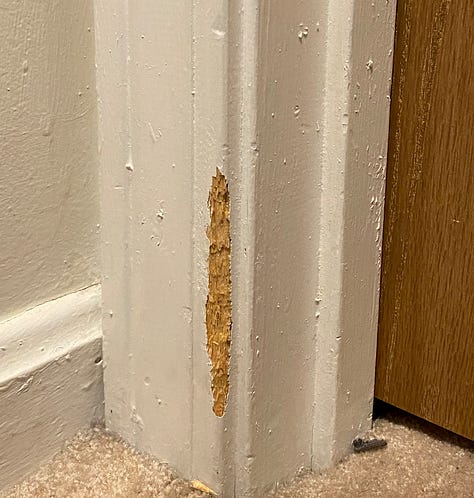



Spay & Neuter: To prevent spraying behavior and cancers in the future, we recommend spaying and neutering rabbits. This can be costly, so if you are considering a rabbit, this is part of the financial commitment. Spaying and neutering should happen between 6-12 months of age.
Costs: Rabbits live an average of 10+ years. This is a financial commitment that you must be dedicated to. We recommend yearly physical exams and, if they get sick, then you will have that financial obligation as well. Rabbits that are well cared for typically do not need to come into the hospital, but if they do, spending $500-$1000 is not unusual on a medical appointment for them. This may seem like a lot of money "for a bunny," but remember, a pet is a long-term financial commitment. You agree to love and care for them and share your life with them, that includes a financial commitment as well.
Rabbits are a low-maintenance pet, right?
That is a big NO! Rabbits require quite a financial commitment, let's look at it…
Cost of rabbit: $100
Can I afford it?Cost of cage: $80+
Can I afford it?Cost of bedding for 1 year: $520
Can I afford it?Cost of food for 1 year: $700
Can I afford it?Cost of basic veterinary care for 1 year: $500
Can I afford it?Total: $1900
Can I really afford it?Total cost for 10 years: $11,710
Really? Is that how much?
Lifestyle: It is not only the financial commitment to bring home a rabbit, but it is the lifestyle commitment as well. Our pets, rabbits included, require attention. They are part of the family and they deserve to have attention, love, and affection every single day. Most of my rabbit owners have their rabbits out with them for 4-6 hours per day. This requires supervision and caring. Make sure you have the time, financial commitment, and the unconditional love to give.
Cleaning/Care: Let's also talk about the work. You must clean the cage daily and disinfect the cage weekly. This will take about 30 minutes in the morning and 30 minutes at night and at least 1 hour on the weekends. Rabbits POOP A LOT! More than what you would ever think they would. Other pets, like dogs especially, think rabbit poop is a delicacy, so you do need to keep up with the cleaning and the safety of the cage.
Indoor Pet: Lastly, I do believe rabbits should be indoor pets. They should be integrated with the family and family members. Outdoor hutch rabbits are susceptible to many illnesses, including getting overheated in hot climates and very cold in cold climates. Though they have their furry coats for temperature regulation, the extremes are difficult for them in a hutch. They are also at risk for flystrike, a condition where flies can lay eggs in their fecal matter crusted to their bums and then, guess what? Maggots can hatch out, and then we have a very big problem. This is perhaps one of the top reasons I think rabbits should be housed indoors and checked regularly to make sure their bottoms are free and clear of fecal matter.
Having a cute little new furry Easter bunny might seem like an appealing idea, particularly for the adorable Instagram photos it could yield. However, it may not be the wisest choice for everyone. Rabbits can indeed make wonderful pets for those who have thoroughly done their research and are fully prepared to welcome a new family member into their home. They require a significant amount of care, attention, and a long-term commitment both emotionally and financially. The decision to bring a rabbit into your home should not be taken lightly, especially as a whimsical gift for Easter. For those not ready for such a commitment, consider opting for a stuffed Easter bunny or, even better, a chocolate Easter bunny. These alternatives require minimal care and can still provide temporary joy without the financial investment and a 10-12 year commitment.
